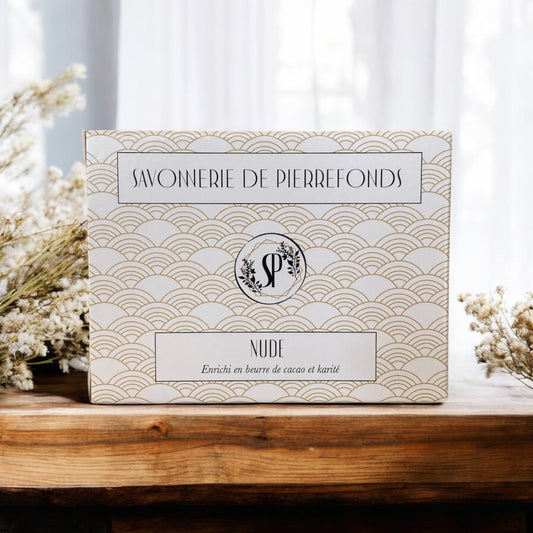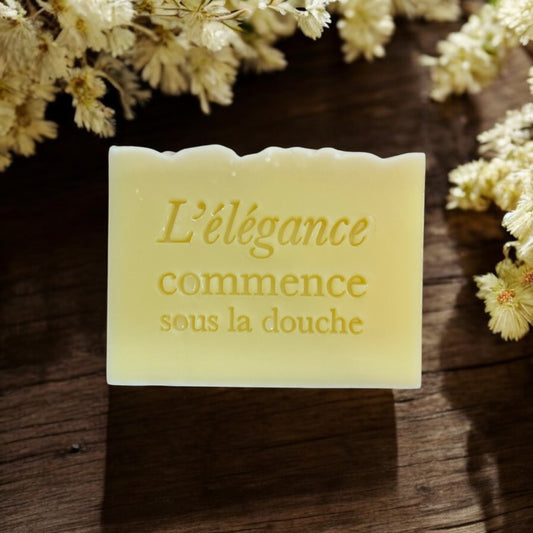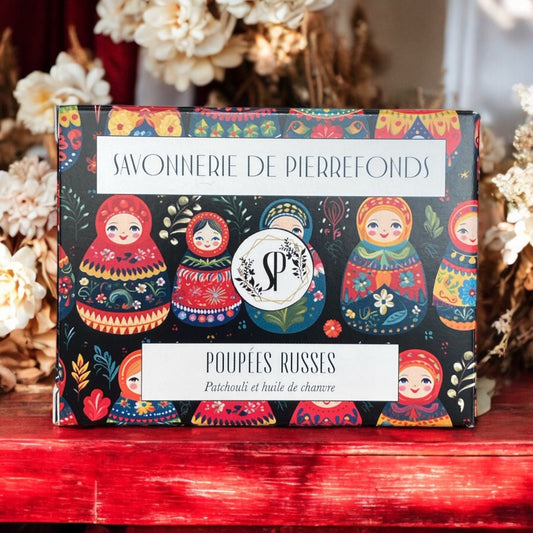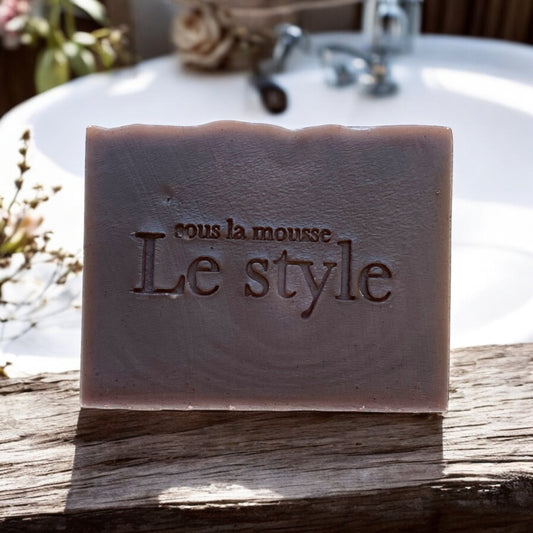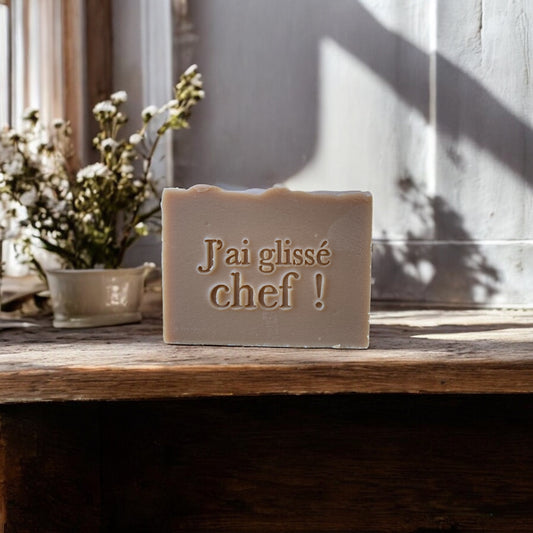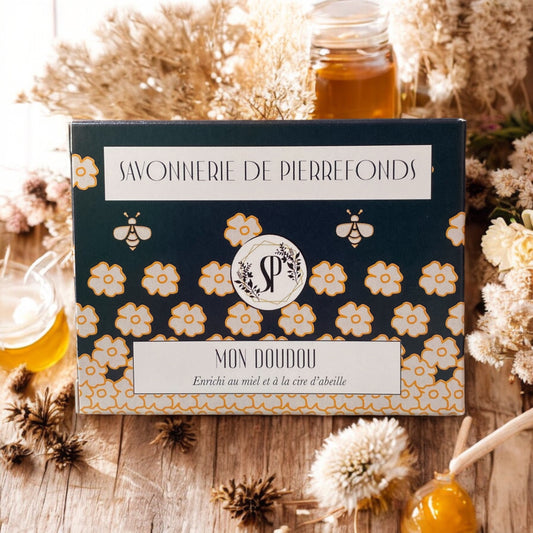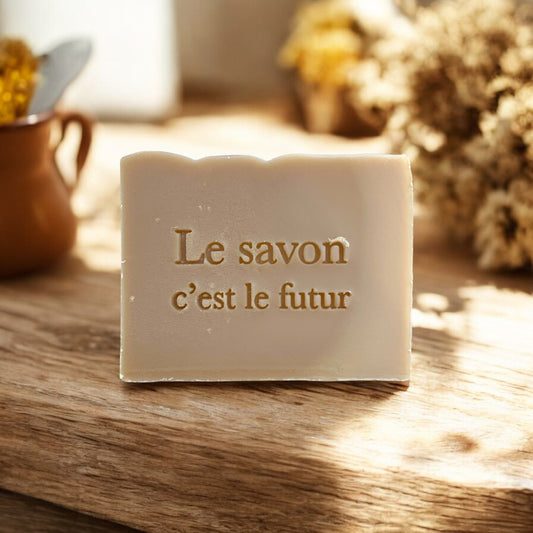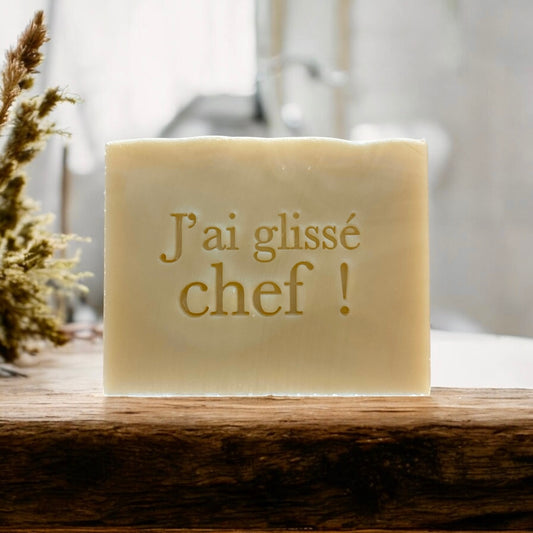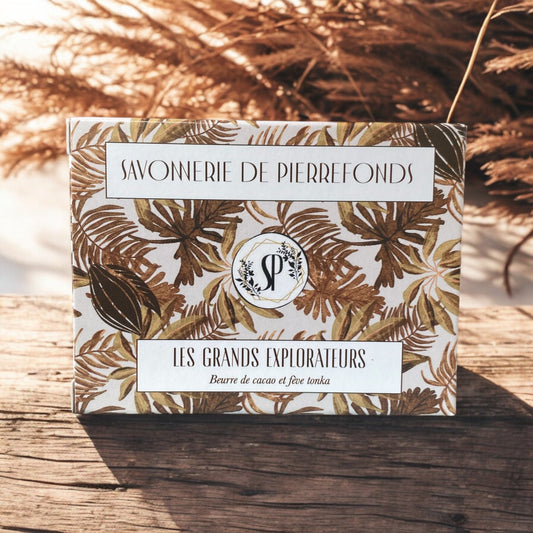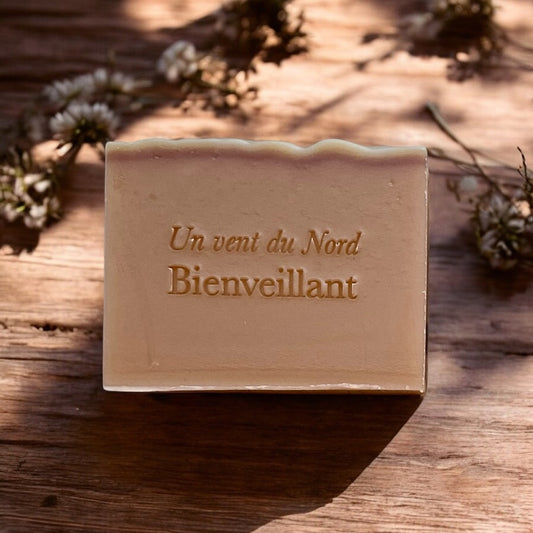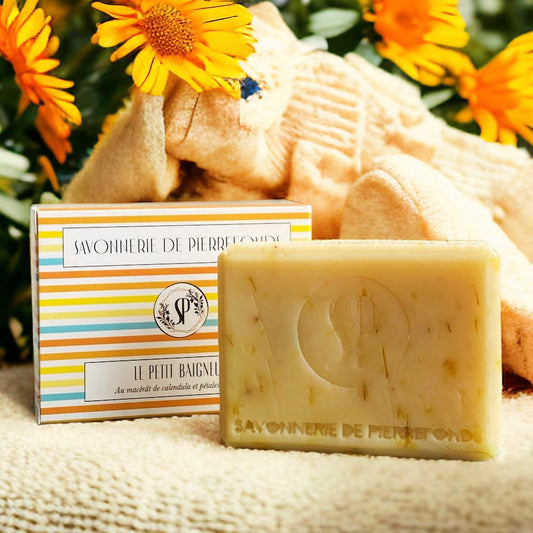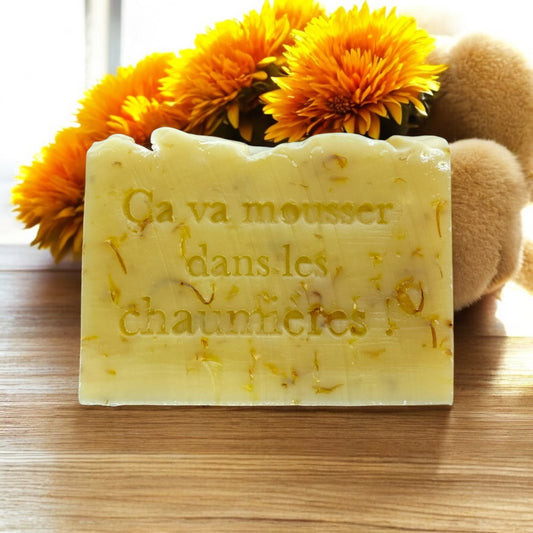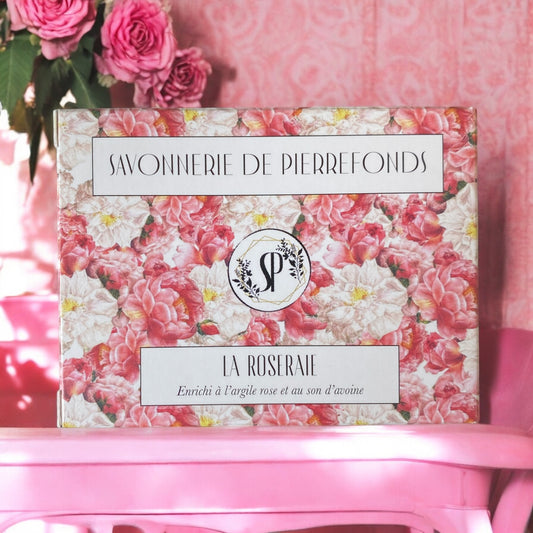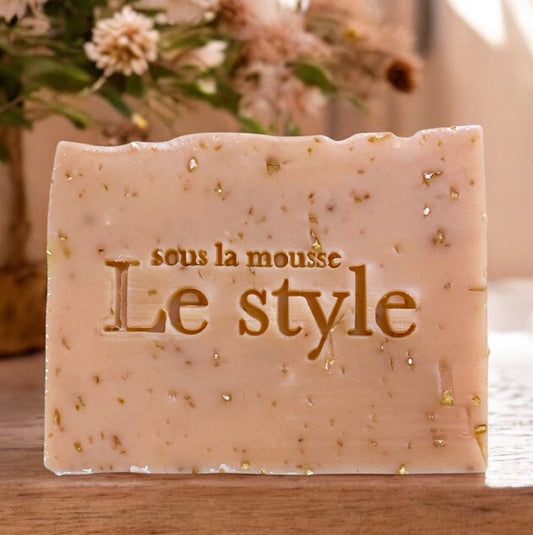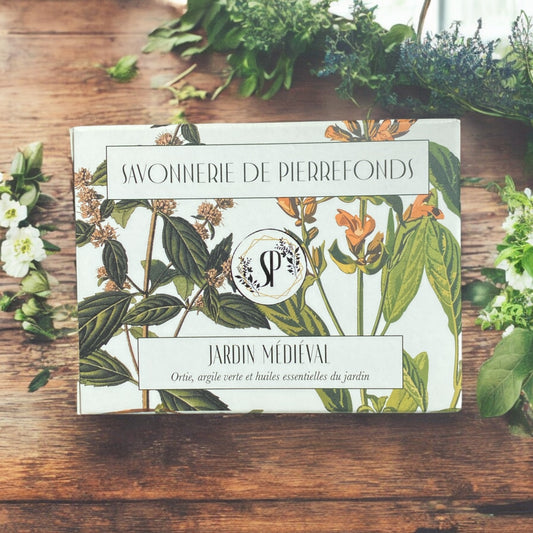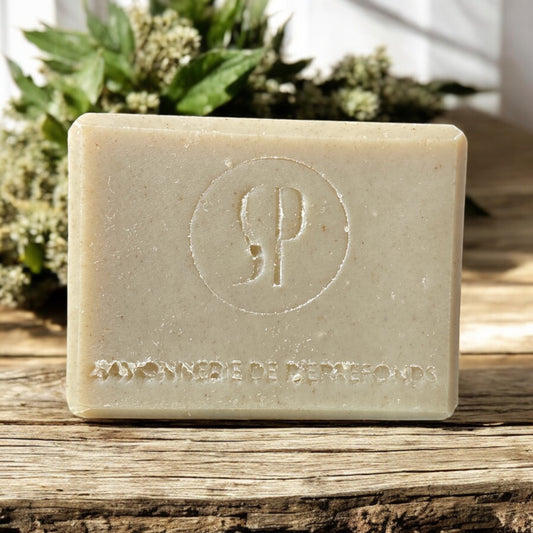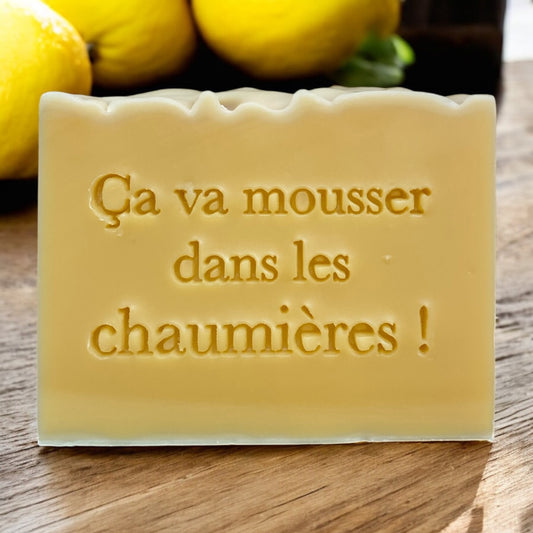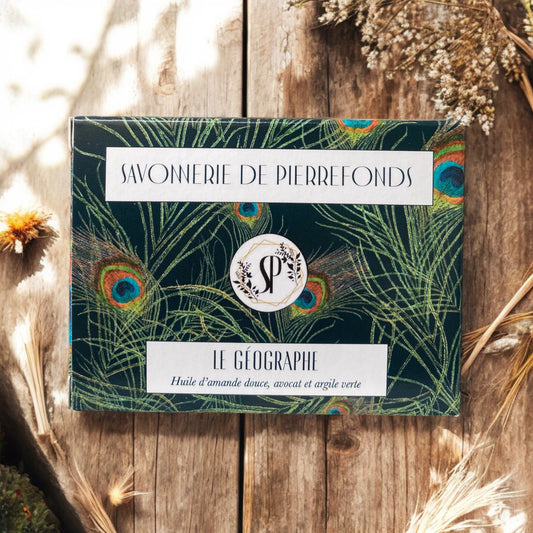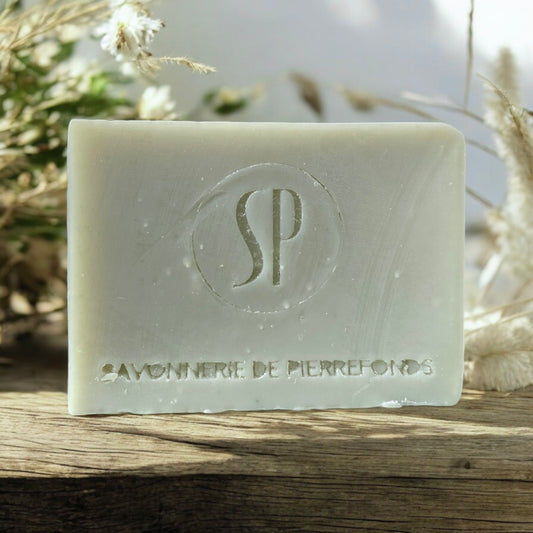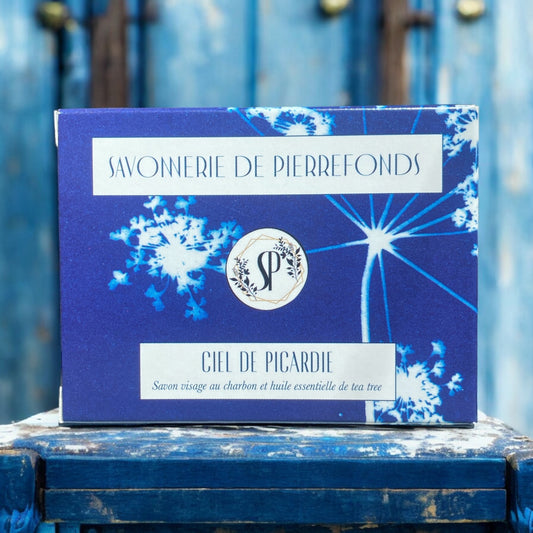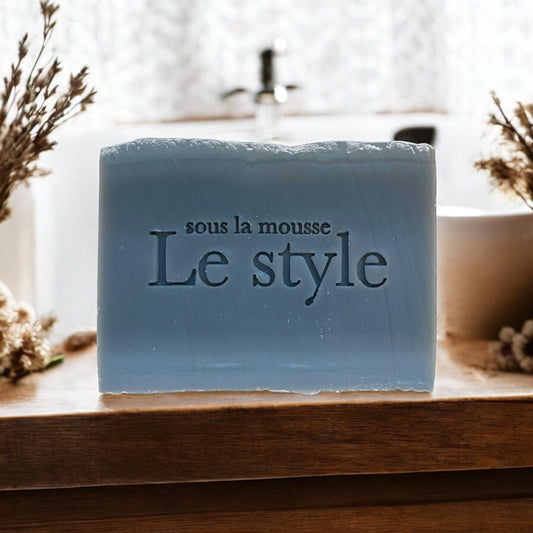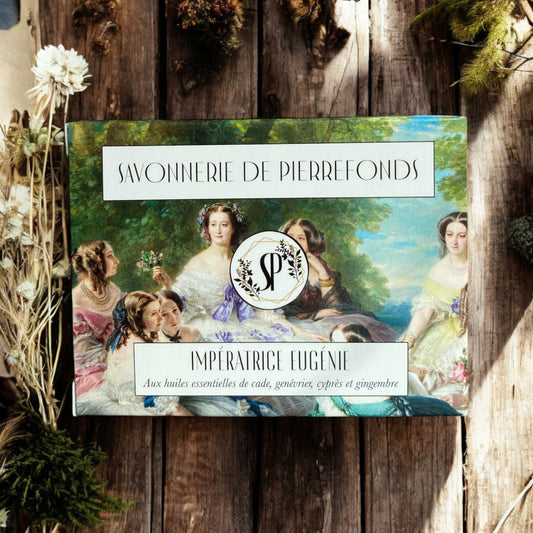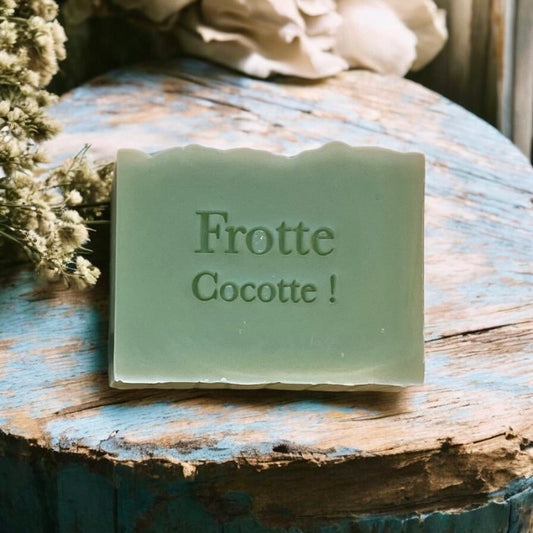Collection: Our handmade soaps
Our surgras artisanal soaps are made by hand and come from cold saponification . The raw materials used are natural and mostly from organic farming, as are the dyes (clays and plants). For the fragrances, we have selected natural olfactory compositions by working with an artisan perfumer from the south of France.
-
"Nude" Soap
5.0 / 5.0
(3) 3 total reviews
Regular price From 8,50€Regular price -
Savon surgras "Poupées russes" Patchouli et Huile de Chanvre
5.0 / 5.0
(1) 1 total reviews
Regular price From 8,50€Regular price -
Savon exfoliant "Jardin des Thermes"
5.0 / 5.0
(1) 1 total reviews
Regular price From 8,50€Regular price -
Savon surgras "Mon Doudou" Miel et lait de chèvre
Regular price From 8,50€Regular price -
Surgras Soap "Mon Doudou" Honey and Beeswax
5.0 / 5.0
(3) 3 total reviews
Regular price From 8,50€Regular price -
Surgras soap "Return to the beach" Shea butter and Monoï
5.0 / 5.0
(16) 16 total reviews
Regular price From 8,50€Regular price -
"The Great Explorers" Soap
5.0 / 5.0
(2) 2 total reviews
Regular price From 8,50€Regular price -
"The Little Bather" Soap
5.0 / 5.0
(7) 7 total reviews
Regular price From 8,50€Regular price -
"The Rose Garden" Soap
4.0 / 5.0
(2) 2 total reviews
Regular price From 8,50€Regular price -
Surgras Soap "Medieval Garden" Nettle Green Clay and Garden Essential Oils
5.0 / 5.0
(1) 1 total reviews
Regular price From 8,50€Regular price -
Surgras Soap "Italian Garden" Apricot Oil and Carrot Macerate
5.0 / 5.0
(3) 3 total reviews
Regular price From 8,50€Regular price -
Surgras soap "Le Géographe" with avocado & sweet almond oil
5.0 / 5.0
(3) 3 total reviews
Regular price From 8,50€Regular price -
Surgras Soap "Ciel de Picardie" Vegetable Charcoal and Tea Tree
5.0 / 5.0
(2) 2 total reviews
Regular price From 8,50€Regular price -
"Eugénie Empress" Soap
5.0 / 5.0
(1) 1 total reviews
Regular price From 8,50€Regular price
How to use handmade soap?
Molded and cut in an artisanal way, surgras soaps from the artisanal soap factory of Pierrefonds are composed of natural and organic ingredients such as vegetable oils , nourishing butters and fragrant essential oils . These quality ingredients are carefully chosen for their skin benefits and moisturizing properties. Our soaps are suitable for all skin types: dry, sensitive, oily ...
Surgras soaps are softer than average and will tend to melt faster. That's why we advise you to use a magnetic soap dish to keep them dry. We also advise you to have one soap per person. Indeed, if you take a soap for the whole family, it may wear out much faster, because of chain reuse, or water mixes with the bread.
8 good reasons to use cold saponified handmade soap
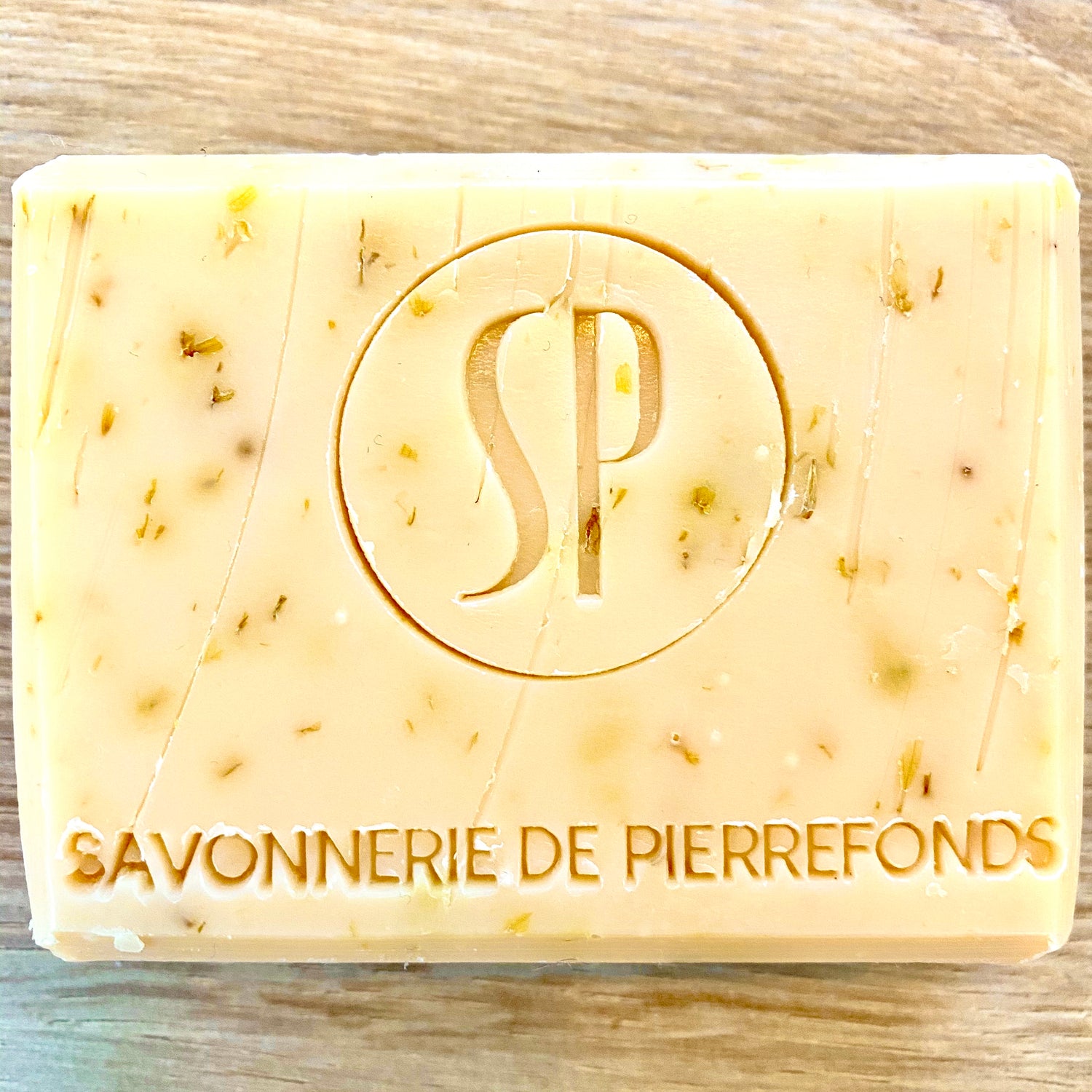
#1 Glycerin
During the saponification process, the
glycerin forms naturally. Cold saponified soaps are therefore naturally rich in vegetable glycerin, known for its moisturizing, emollient and protective properties.
We sometimes observe in cold saponified soaps, somewhat transparent ribs. Soap makers call them “rivers of glycerin”!
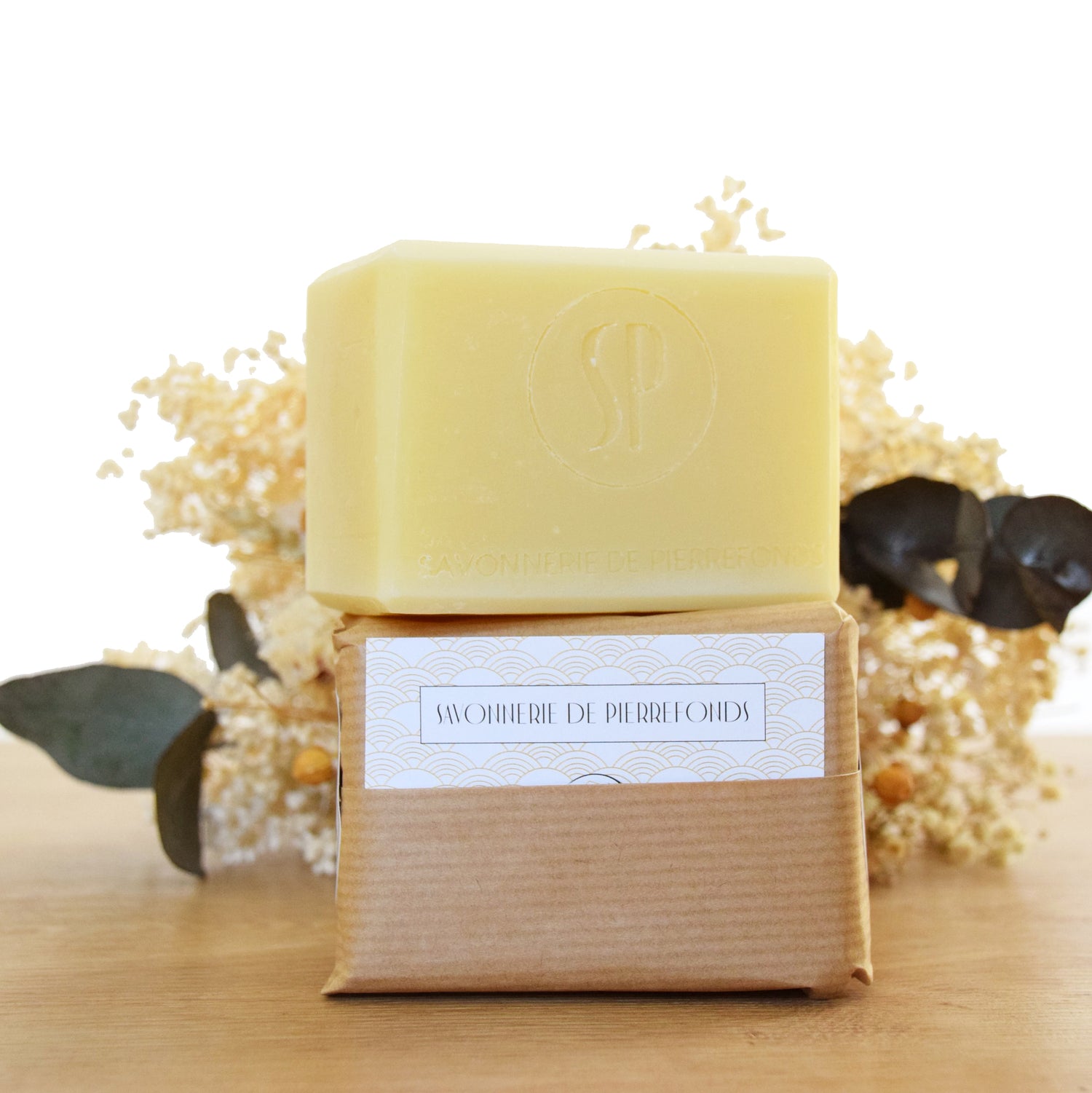
2# Surgras
Industrial soaps are made with excess soda (to saponify all the fatty substances), then they are rinsed to remove the remaining soda. During this operation, they also lose their glycerin. These soaps (quite harsh) are more suitable for household use than cosmetic. Cold saponified soaps are made with an excess of fatty substances ( vegetable oils , shea butter , etc.). Once the saponification process is complete, there are therefore unsaponified fatty substances in the soap. It is for this reason that they are called " surgras ".
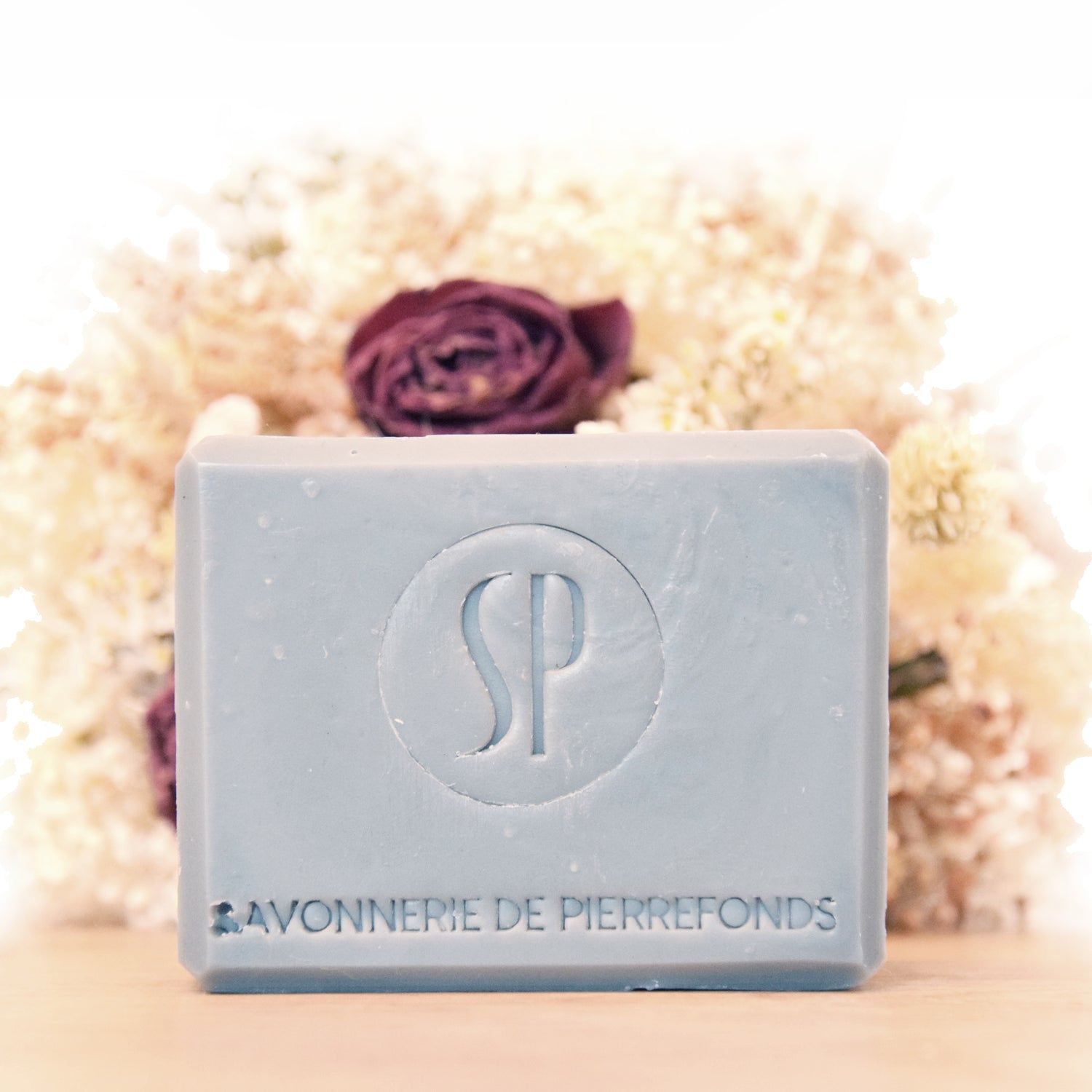
#3 Ingrédients
To make a soap, you need: a fatty substance and an alkaline agent (soda, potash). The chemical reaction between these two components gives rise to soap.
This is called " saponification ".
Cold saponification strives to respect the raw materials. Fats are processed at a maximum of 35°C.
They therefore retain their properties and do not
are not damaged during manufacture .
Industrial soaps are shaped hot
and the fatty substances are raised to temperatures of between 100°C and 130°C.
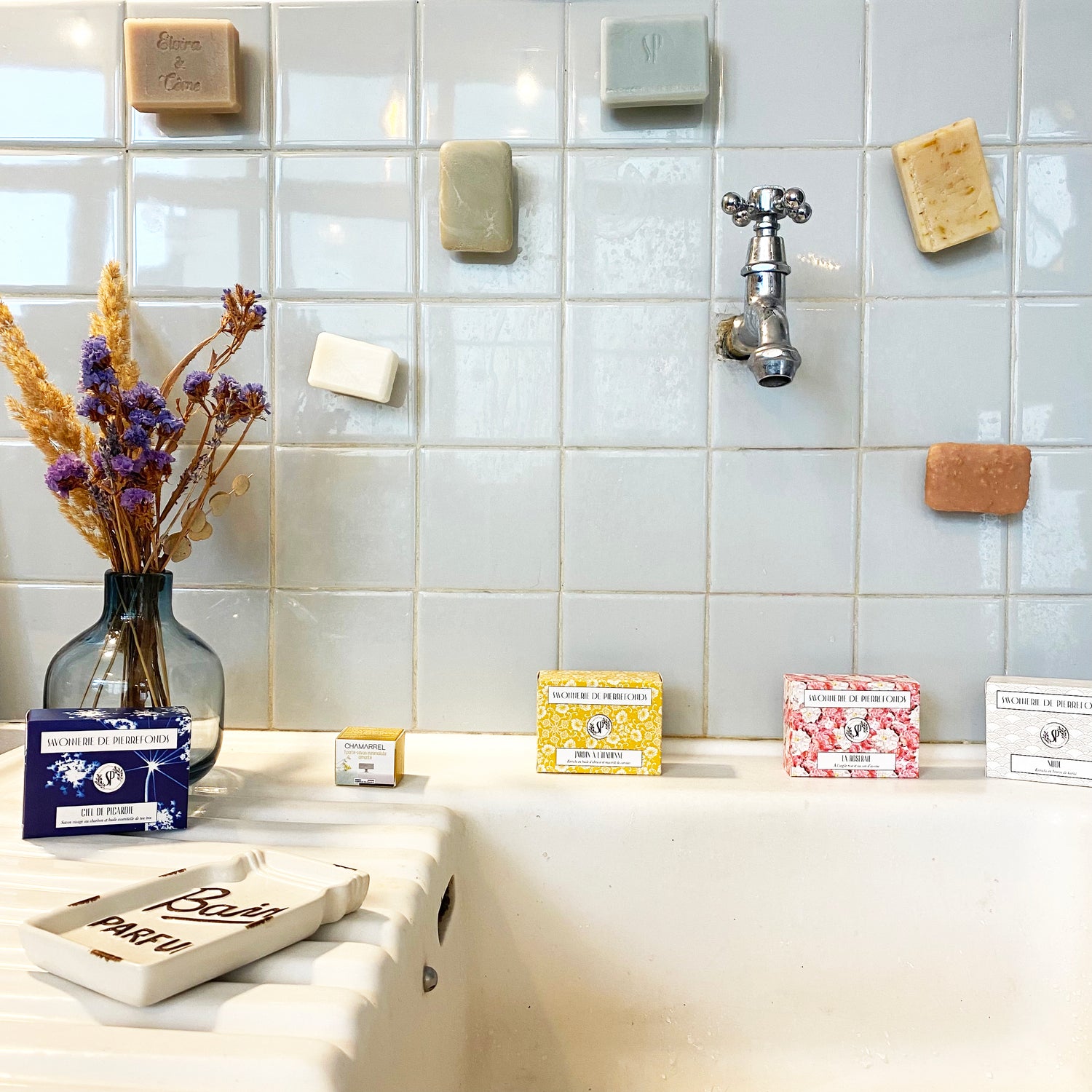
#4 Zero waste
Each year, 186 million bottles of shower gel are sold in France. With the
shampoos and bubble baths, they generate 16,000 tonnes of packaging and only 40% is recycled (Source: Ademe).
Handmade soap bars often have minimalist packaging (paper or cardboard) and do not generate plastic waste. Preferring soap to shower gel is taking a first step towards zero-waste!
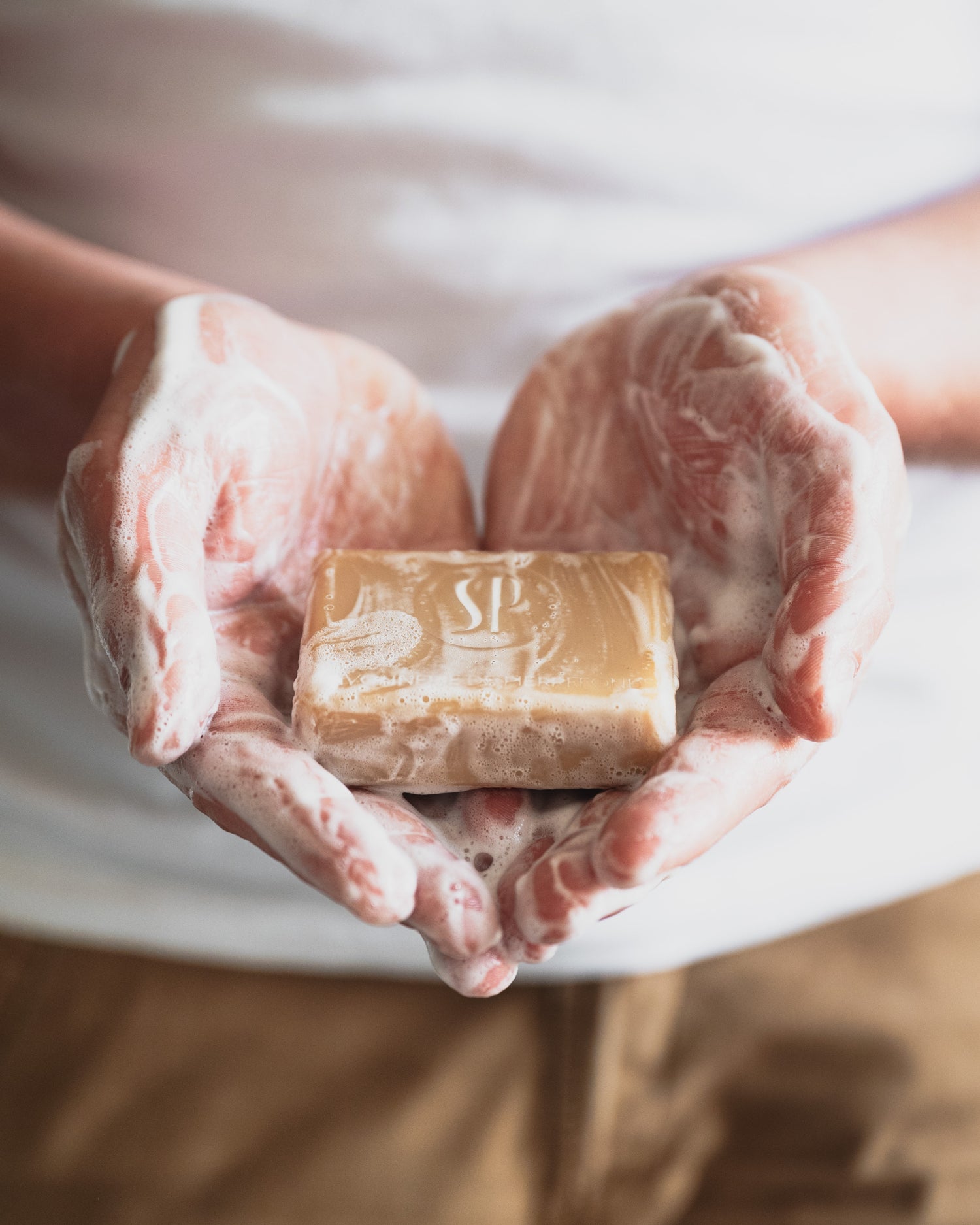
#5 Health
Most cold process soaps do not contain controversial and superfluous products (but this is not always the case). To protect your health, learn to read
the labels where the ingredients are indicated according to the INCI nomenclature (International Nomenclature of Cosmetics Ingredients). At the beginning of the list, we find the majority ingredients, then, those whose quantity is less.
For a soap, the list always starts
by saponified oils (soap): Sodium... "ate".
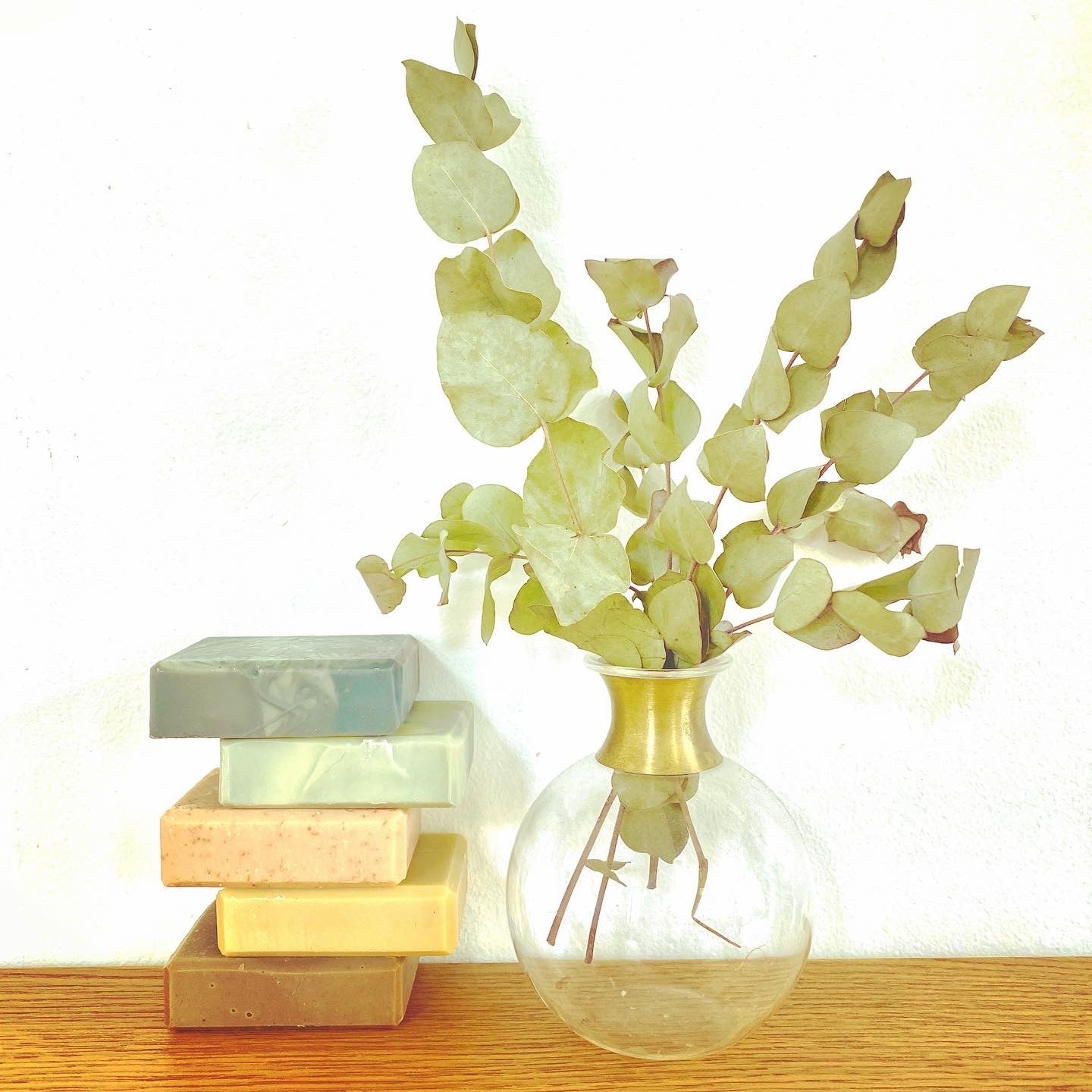
#6 Planet
Entirely biodegradable , cold saponified artisanal soaps do not contribute
not to water pollution and the degradation of ecosystems.
Choosing a handmade soap is making a gesture in favor of the protection of water resources.
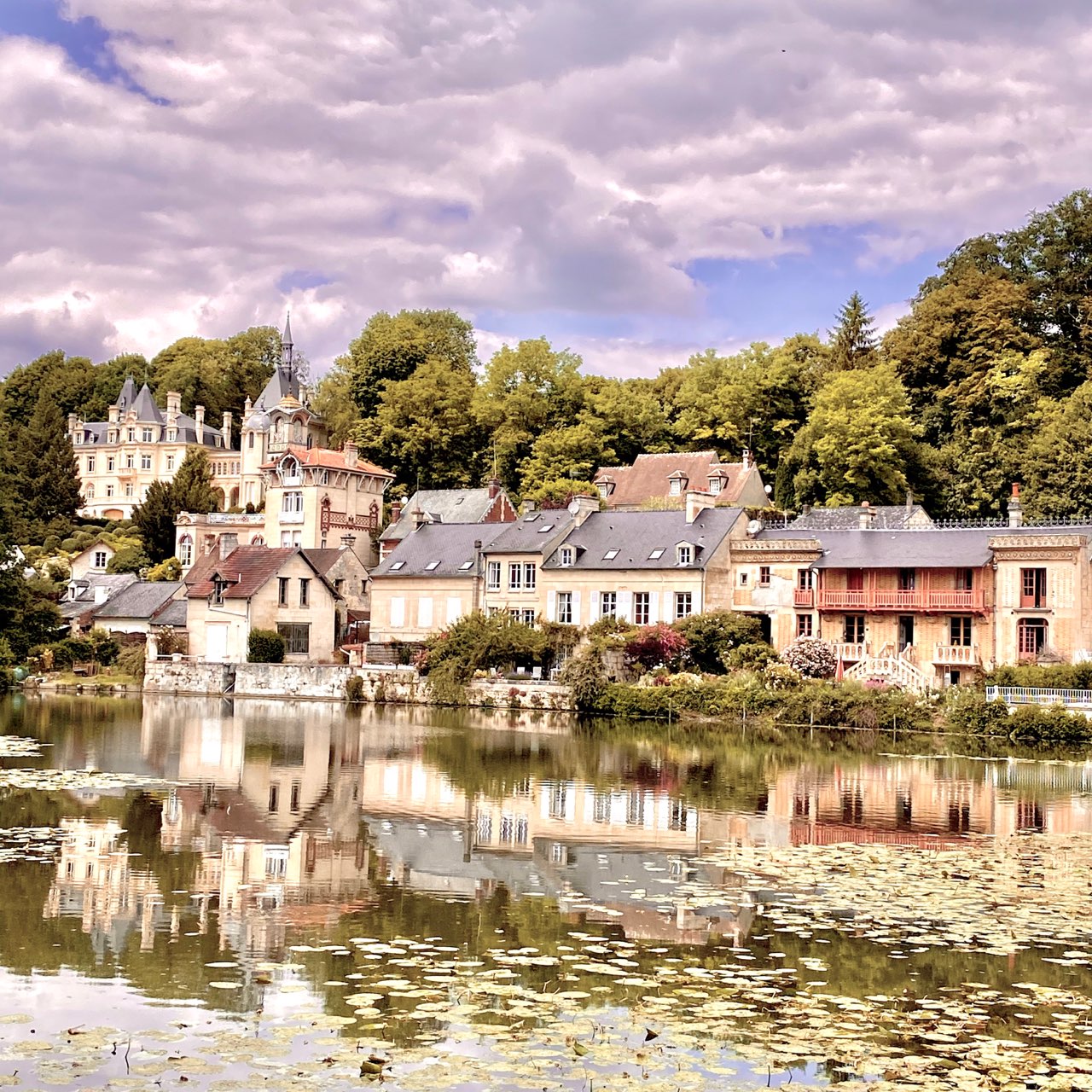
#7 Economy
Buying cold saponified soap from a craftsman near you helps support the local economy and short circuits . The artisanal soap factories established in the countryside contribute to revitalizing rural areas and it is also this momentum that everyone can support thanks to their consumption choices.
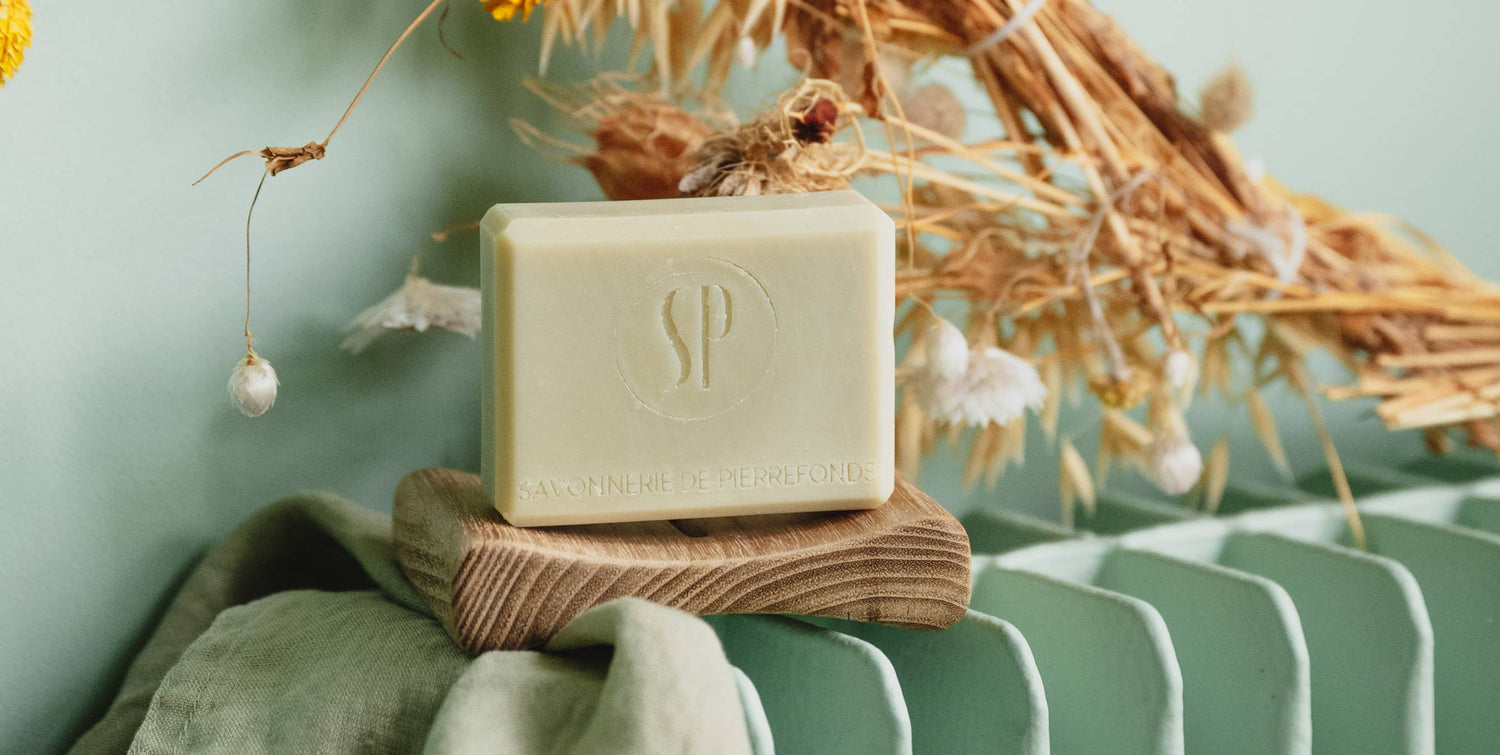
#8 Cheaper
Provided you dry it properly between two uses on a soap dish
which makes it possible to drain the water well, a 100g cold saponified soap makes it possible to carry out
more washes than a 250ml liquid shower gel (especially when used with a shower flower that helps improve its
foaming power). Economical, ecological, respectful of your skin and the environment... Cold saponified soap has it all!
Quel savon artisanal choisir ?
Vous avez la peau sèche ? Optez pour ces savons : Nude, Mon Doudou, Les Grands explorateurs, Le Géographe
Vous avez la peau grasse ? Préférez ces savons : Jardin Médiéval, Ciel de Picardie, Impératrice Eugénie
Vous avez la peau fragile (notamment les enfants) : Partez sur ces savons : Le Petit Baigneur et Mon Doudou
Tous nos autres savons artisanaux sont adaptés à toutes les peaux !

